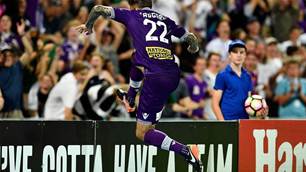Ruben Zadkovich is becoming one of the most sought-after coaches outside the A-League. But to understand the 33-year-old’s NPL success, he tells FTBL how his rollercoaster career and academic family background shaped his philosophy.
Zadkovich was a tyro on the pitch. And he loved his surfing – but there was and is a lot more to him than just that.
And it’s this philosophy of management that is powering his new career as an NPL head coach with high-flying Broadmeadow Magic.
For instance, instead of Bali or Vegas, he was a regular visitor to the Northern Territory during his A-League off-seasons while playing for Newcastle Jets, visiting brother Simon, a remote-area nurse for Marthakal Homelands Health Service, who was dedicating his time to Indigenous communities in East Arnhem Land.
It gave him a fresh perspective on life as a professional footballer.
His mother was a school principal, dad was the deputy president of the NSW Teacher’s Federation. His other brother was a top university student who is now a successful lawyer in New York.
A caring, kind, equality focused, educated working class family with values. It’s held their footballing son/brother in good stead.
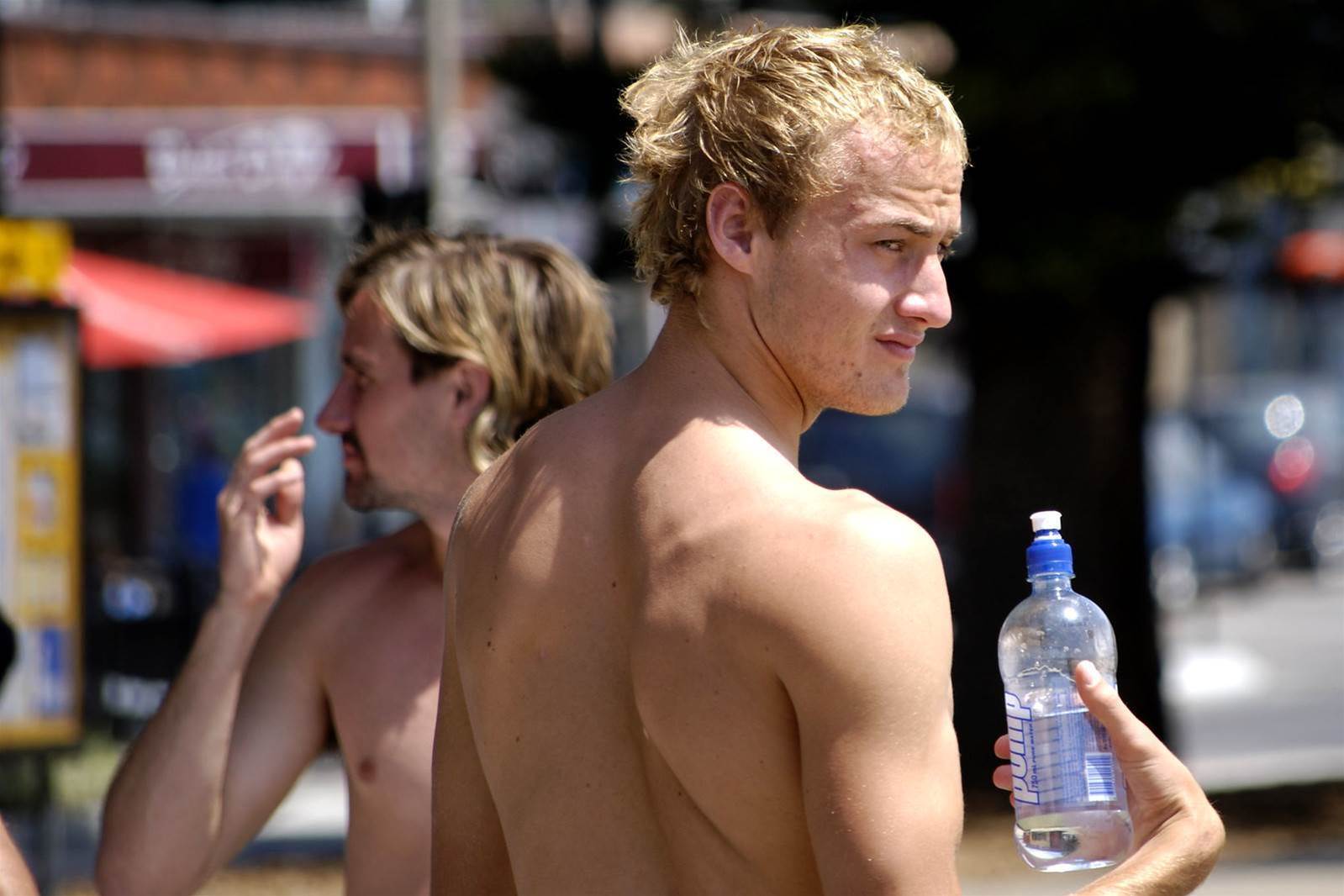
Now though Zadko-coached Magic are currently top of the NNSW NPL ladder.
They won the Grand Final in 2018. And a Macedonian Cup. Zadkovich's men also scored the most goals, had the highest number of clean sheets and made the last 16 of the FFA Cup.
Not bad for a first-time head coach who took over the club in 2017.
In fact, the 33-year-old truly embodies what it means to be a head coach in the modern era.
Gone are the days of a remote, aloof figure, feared and disconnected, barking orders while his assistants put an arm around the players.
Now, it’s a more nuanced approach. A more thoughtful, smarter and people focused role.
A leader and shaper of the culture, a smarter man manager, a physical and mental wellness-focussed head of the group who draws on the skills of the team around him to build a winning, honest and open atmosphere.
That’s how Zadkovich is approaching his role in the NPL.
And he’s understandably ambitious.
Here, he tells FTBL why life as a head coach is exactly where he wants to be, why Graham Arnold is a mentor and how Harry Kewell was so kind to him during his darkest days.
RUBEN ZADKOVICH: HEAD COACH. WHO IS HE?
People skills, management, inspiration, evoking emotion, tactical analysis, understanding people and their story and why they are where they are, and how can you help them build confidence - finding that balance between all of that and being ruthless to do what’s best for the team. That's how I see it.
I feel these things come a lot more naturally to me.
I’m not under any illusions and I’m not in a hurry, I just want to continuously develop myself and work super, super hard.
But managing a professional football team is definitely my goal and my aim.
My personality is very much, I focus on something till I get it. That’s my mindset.
But it will happen at some point because of the time and effort I’m putting in, the mistakes I’m making, what I’m learning, I know when I get there, I’ll be there to stay.
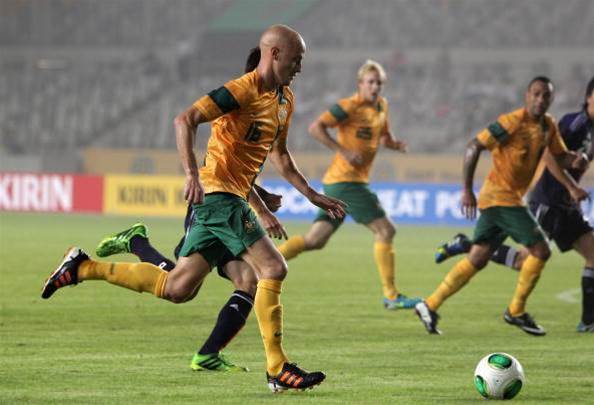
HOW DID YOU TRANSITION FROM BEING THAT PLAYER TO THE COACH YOU ARE?
It’s a weird thing even for me to think. Trying to change the mindset that goes with it. It’s so different but I’m absolutely loving it.
Staying in the game and the game’s given me everything in life. To be still part of it and giving back to the new generation.
100% I want to continue. Two years I’ve been coaching at NPL level here and we had an amazing season last year. And we’re top of the league.
I then finished my playing career in Perth with Kenny Lowe, who’s an amazing person. And someone I’m now really close to as a coach.
I look up to the Kenny Lowes and Graham Arnold’s who coached me in the Olyroos, and they are the ones I aspire to be.
Arnie’s ability is amazing. He’s shown us the way. I've learned so much from how he does things.
I was by no means a talented footballer but I worked really hard and had to grind and slog to get everything I got with my limited ability.
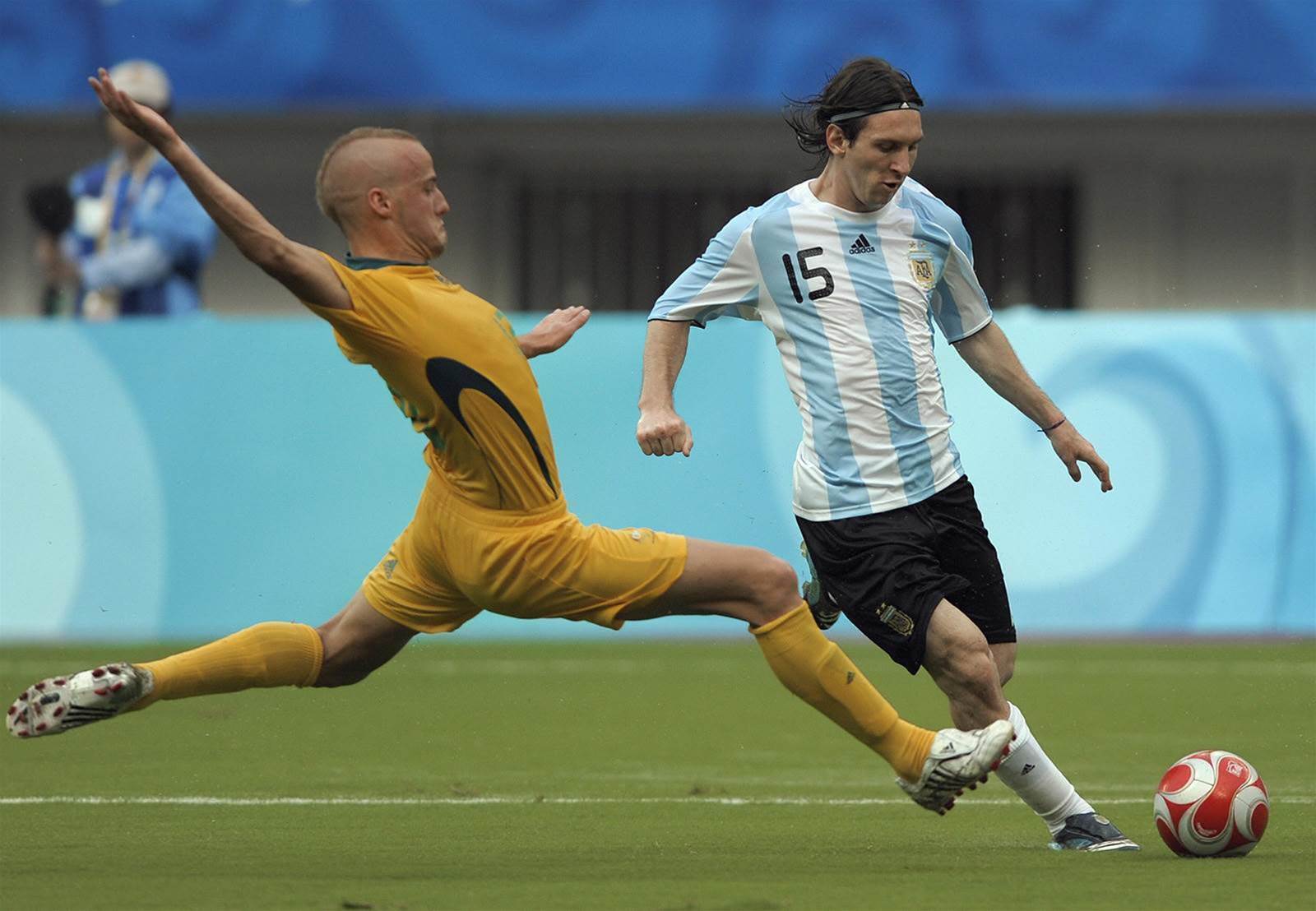
GOING BACK IN TIME, YOU TORE YOUR GROIN IN INJURY TIME MARKING MESSI FOR THE OLYROOS AT THE 2008 OLYMPICS. IT CLOUDED YOUR MOVE TO DERBY. TALK ME THROUGH THAT TIME AS A 22-YEAR-OLD?
I’d already signed for Derby so I got to the club with this groin injury. It’s not something that’s been spoken about much or that I’ve dwelt on because it’s part and parcel of the game.
But you often read about failed experiences with young Australian players in Europe. For me it was disappointing.
I’d finally got to a league that I knew would suit me, the Championship. Very aggressive, hostile and you’ve got to be very fit, you’ve got to manage the game well.
I really liked that side of it.
TELL ME ABOUT THE INJURY?
I had three groin operations: a double hernia bi-lateral repair, a left-sided ductor release a left side groin reconstruction.
I spent 18 months straight not playing a competitive game without injury.
Still, against Wolves away. They were top, we were 18th and losing 3-0 but getting the man of the match from our side in a team well beat.
And then playing three days later against Charlton coming off after 55 mins with my groin no good again.
The games rolled around thick and fast and I was never fit to play them. I was there, part of a massive squad at a club with amazing facilities and a huge fanbase at Pride Park.
I came on at half time against Leeds marking Fabian Delph who’s now at Man City, Adam Lallana was at Southampton at the time, I was living my dream.
But unfortunately, that groin injury cost me 18 months.
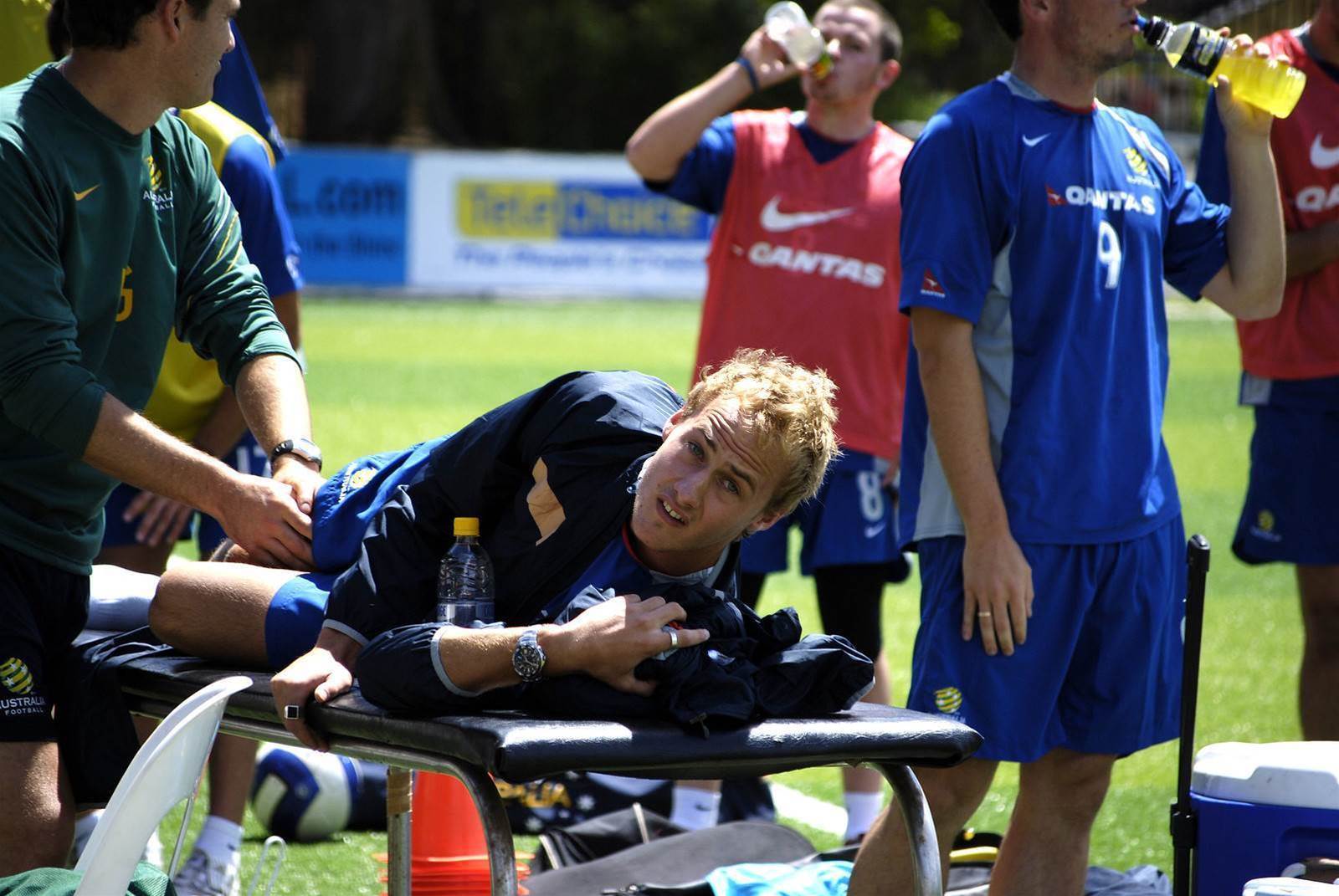
HARRY KEWELL REACHED OUT?
When I came back for that last groin reconstruction it was Harry and his team of physios who helped me out.
Harry’s a fantastic guy. I was a young Socceroo who’d played once and he was on the field when I debuted so you get to know him in the two-week camp.
He reached out. And for me having watched him on TV on SBS, you’d want to be Harry Kewell.
He put me in touch with the groin surgeon who looked after him.
Yes, it is tough. I was lucky in that I had played in the national team and Harry Kewell was very kind. And Darren Burgess coming down to the training ground, helping me meet with some people to help with the groin.
Without that help, my career might have been done there and then. Without Harry Kewell’s kinda guidance.
As well as Darren Burgess and Les Gelis from the Socceroos medical staff, helping me too. Without their help, I may never have got that groin right.
I was living the dream of being able to call Harry Kewell a friend.
You realise how lucky you are.
FOOTBALL IN EUROPE CAN BE BRUTAL. AGREE?
Yes. Absolutely.
I finally got my groin kinda right, and then while I was away Paul Jewell got sacked at Derby and a new manager came in.
By the time I came back to the club from the operation in Australia and ready to have a crack with about four and a half months left on my deal, I literally arrived to a new manager who said I’d hardly played, have been injured and I need to find a new club because new players were coming in.
It’s all part of football.
It’s funny because all you read about it is a so-called ‘failed stint’.
That word ‘failure’. I’m happy to face defeat and face failure when you gave your best and you weren’t good enough.
But not being fit enough to be able to even compete. And not being injury-free was just so hard to swallow.
I then had to come back to Australia and basically rebuild my career. And it took a good three years playing for Newcastle before I was anywhere near my best.
And then slowly got me back into the Socceroos set-up.
And became a captain of an A-League club so it slowly came back for me.
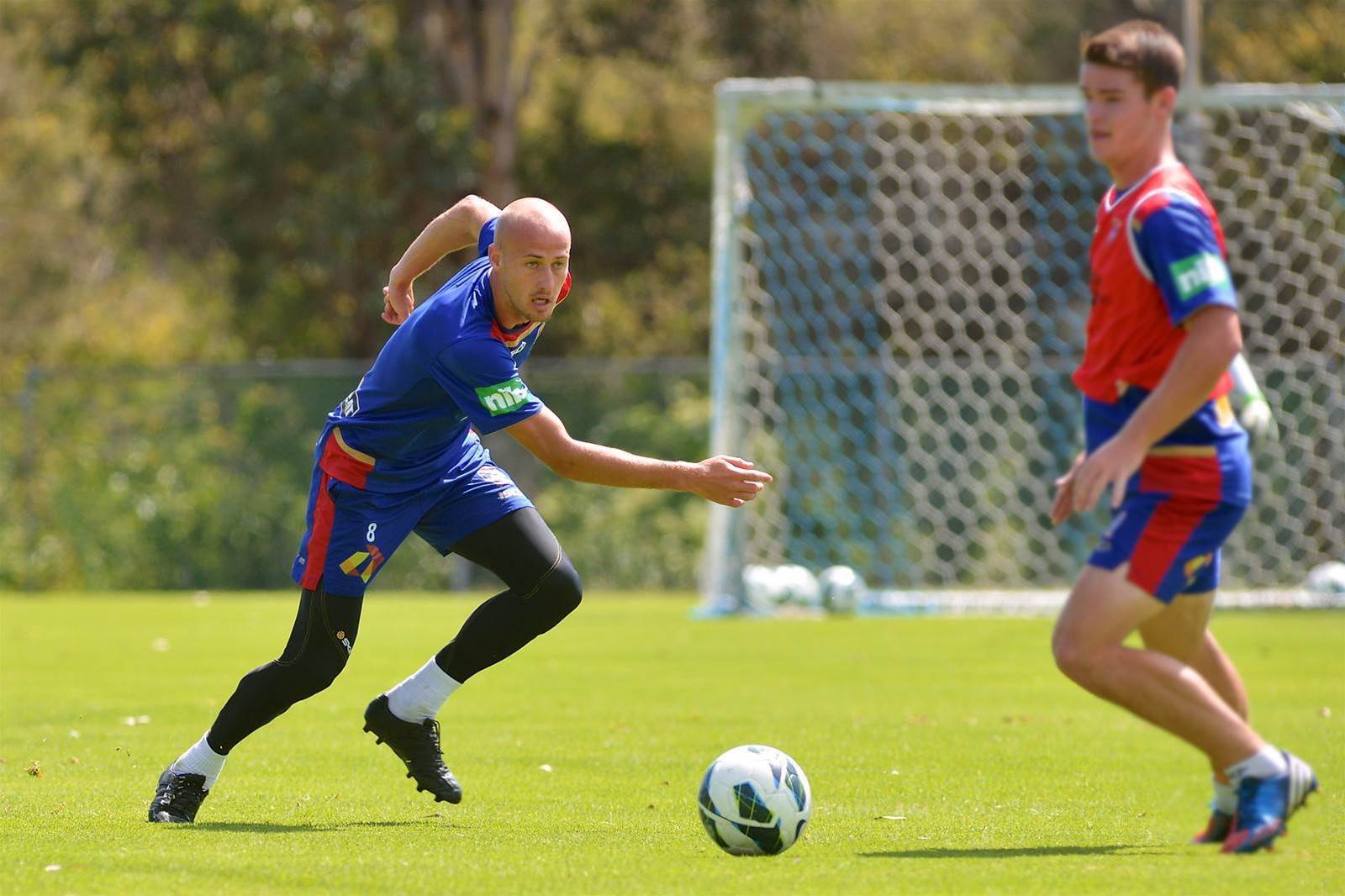
LOOKING BACK ON YOUR TIME WITH THE RAMS?
An amazing time to sign for Derby County, but it was also the toughest time of my career watching my career kinda slip away, and feeling powerless to do anything about it.
It wasn’t till I got that groin right that I could get back on the pitch and do what I do best. I ended up captaining Newcastle, meeting my beautiful wife in Newcastle and giving everything I could for this town.
I look back at that Derby stint and I still learned a whole heap and played against some phenomenal players.
I only had 12 appearances for Derby but it was horrific with injuries. I spent more time on a physio bed and in hospital than I did anything else.
I spent four weeks straight at the Lilleshall English Institute of Sport with a full-time physio. I tried everything to get it right.
It just felt the harder I tried the worse my groin got.
It literally nearly ruined my career.
So I was lucky to rebuild it a club like Newcastle.
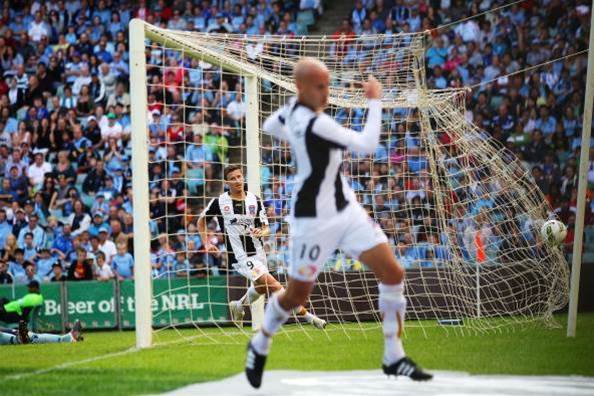
HOW TOUGH WAS IT TO BE AN AUSSIE ABROAD, LEFT TO YOUR OWN DEVICES DURING YOUR INJURY SPELL?
Derby had a team of six physios, but you get given what you’re given. You’re not the main first team player.
You’re just thrown onto a bed, do this do that, and away you go. If you’re not right, it doesn’t matter. There are eight central midfielders in front of you, anyway.
It’s very cutthroat, and a good example was returning back to Derby County and you don’t even get a handshake from the new manager.
He doesn’t want to know you. You walk in with high hopes and it’s just like, ‘mate, you’ve been injured, I’ve got bigger things to worry about’.
COULD YOU HAVE GOTTEN ANOTHER DEAL?
I played a few games in the reserves but the new manager had made his mind up.
I went to Doncaster Rovers and I almost signed on a thousand bucks a week. A pretty basic contract and it was a take it or leave it type deal.
I just felt another championship club, 36 players, my form down and confidence down. Do I really want to slog it out on these heavy pitches with groin pain or am I going to go back and again, you think, ’27 games, six months off-season’.
You go through it and think maybe that’s where I need to be to manage the groin, which was ongoing for maybe 18 months.
I didn’t really have a choice.
LOOKING BACK NOW?
Now I’m a manager your realise you can hardly blame the Derby manager.
A game every three days, relegation battles, cutthroat, budgets, players in and out so you understand he doesn’t have time to get emotionally involved with you as the eighth or ninth choice midfielder who has barely played in two years.
A lot of Aussie kids go with high hopes to do your best and that’s admirable.
When I see a young player brave enough to go I admire they want to be better and their will to do it, but sometimes it doesn’t work out.
It’s still valuable education.
You understand it but it’s definitely difficult. It would be a very lonesome experience without your support network.
And I had a great support network to help me get through the toughest of times.
Related Articles
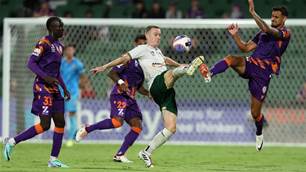
O'Neill headlines exodus as Jets' A-League future hangs in balance
.jpeg&h=172&w=306&c=1&s=1)
Jets players facing punishment for late fadeout
